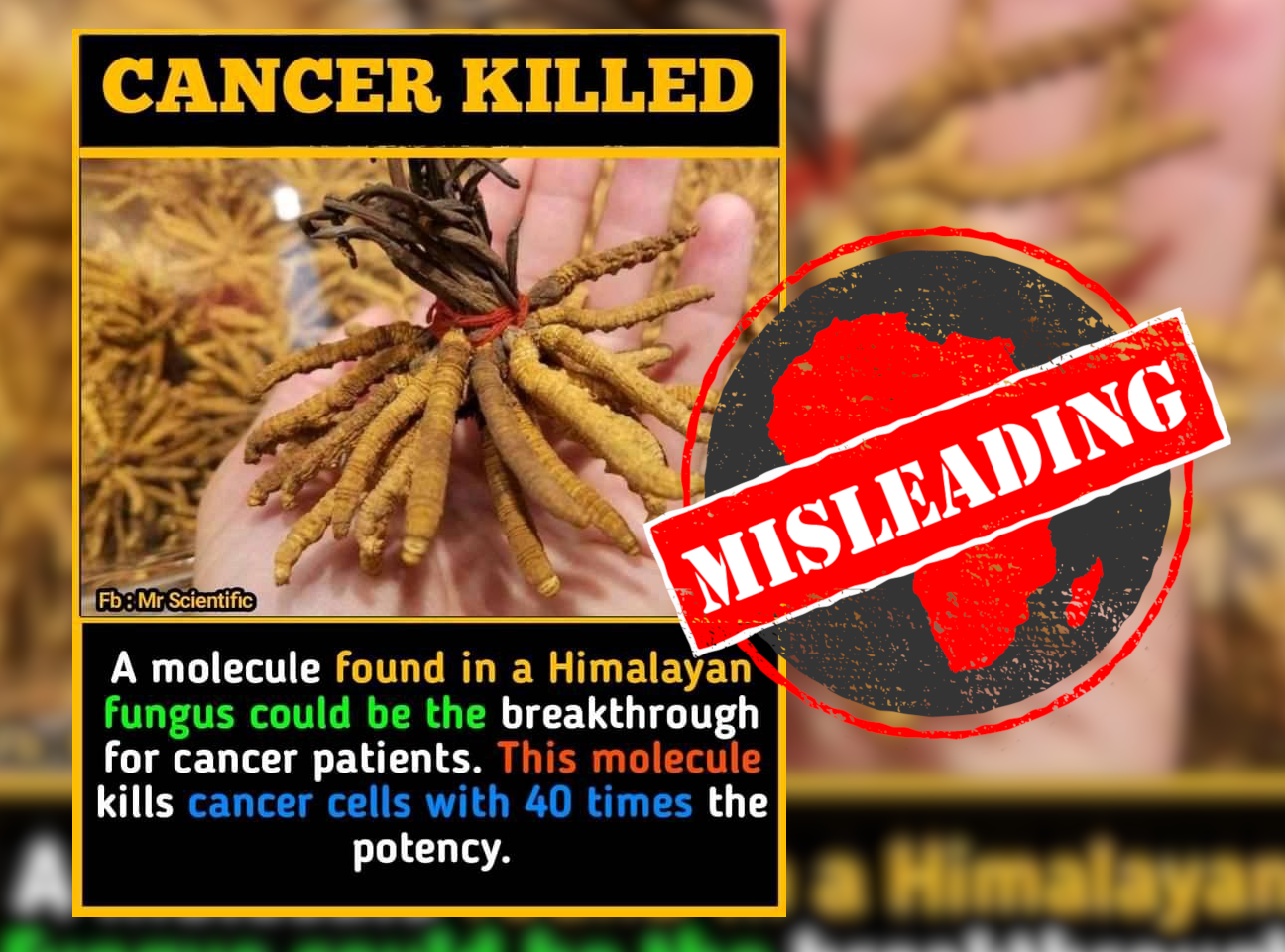“CANCER KILLED” is the headline to a graphic shared on Facebook in South Africa. It had just over 60,000 views in the first 24 hours after it was posted at the end of October 2021.
Below a photo of what looks like a bunch of roots tied together with red string, it reads: “A molecule found in a Himalayan fungus could be the breakthrough for cancer patients. This molecule kills cancer cells with 40 times the potency.”
Africa Check has previously debunked a number of misleading claims about cancer-killing “breakthroughs”. But is it true that a molecule found in a Himalayan fungus kills cancer cells, and with 40 times the potency of what?
We investigated.

‘40 times greater potency for killing cancer cells than its parent compound’
A web search for “Himalayan fungus and cancer” led to an article published on the website of the University of Oxford in the UK on 8 October.
The article reported on research conducted by the university and biopharmaceutical company NuCana. It found that a chemotherapy drug, used for treating cancer and derived from a Himalayan fungus, had “40 times greater potency for killing cancer cells than its parent compound”.
A study reporting on this research was published in the December 2021 issue of the journal Clinical Cancer Research.
The news of the possibly cancer-fighting fungus has also been reported in Medical News Today and New Atlas.
Early trial results positive
The drug is called NUC-7738 and is derived from the fungus Cordyceps sinensis. It has limited toxic side effects. Because it “breaks down quickly in the blood stream ... a minimal amount of cancer-destroying drug is delivered to the tumour”.
It was reported that the drug was in clinical trials to test its effect on patients with “advanced solid tumours that were resistant to conventional treatment”.
Oxford University reported that early results from the trials were “encouraging”. “Early results from the trial have shown that NUC-7738 is well tolerated by patients and shows encouraging signs of anti-cancer activity.”
However, the headline to the graphic, “Cancer Killed”, is misleading.
It may prove to be true that a “molecule found in a Himalayan fungus could be the breakthrough for cancer patients”. But the drug derived from the fungus is still in trials and its potential impact is still inconclusive.
Republish our content for free
For publishers: what to do if your post is rated false
A fact-checker has rated your Facebook or Instagram post as “false”, “altered”, “partly false” or “missing context”. This could have serious consequences. What do you do?
Click on our guide for the steps you should follow.
Publishers guideAfrica Check teams up with Facebook
Africa Check is a partner in Meta's third-party fact-checking programme to help stop the spread of false information on social media.
The content we rate as “false” will be downgraded on Facebook and Instagram. This means fewer people will see it.
You can also help identify false information on Facebook. This guide explains how.


Add new comment